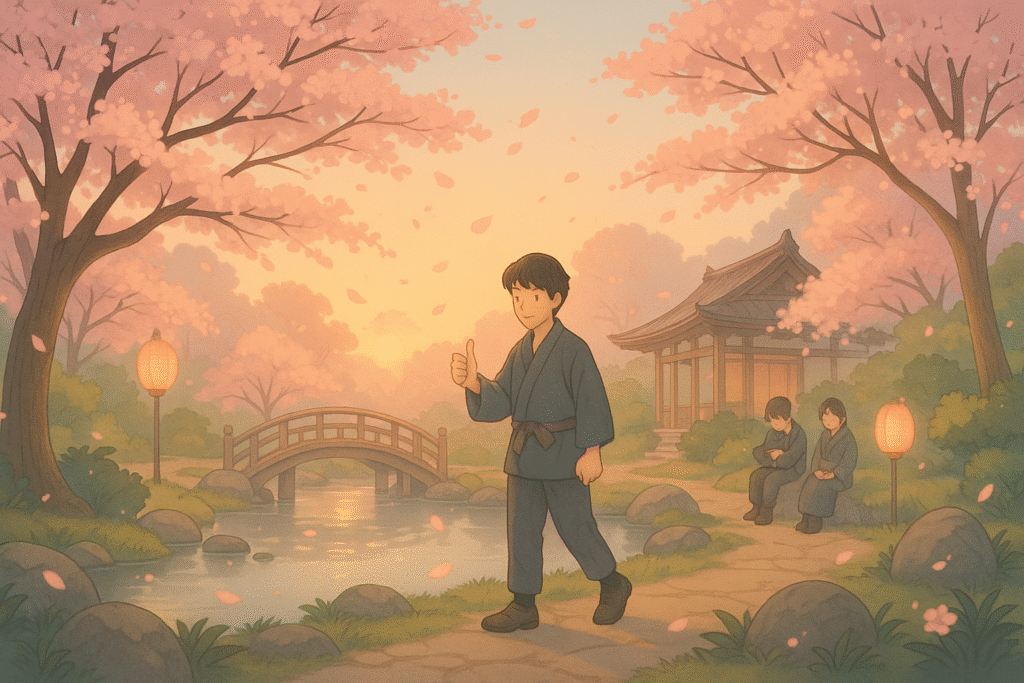Have you ever wondered how to express strong negative emotions in Japanese? Learning how do you say I hate you in Japanese requires not just vocabulary but cultural understanding. While English speakers might directly say “I hate you” during conflicts, Japanese communication follows different social norms that emphasize harmony and indirect expression.
In this comprehensive guide, we’ll explore various ways to express dislike in Japanese—from the direct translations to the culturally appropriate alternatives that Japanese people actually use in daily life.
The Direct Translation: How Do You Say I Hate You in Japanese
For those seeking a straightforward answer: You say “I hate you” in Japanese as “嫌いだ” (Kirai da) or the stronger “大嫌いだ” (Daikirai da). However, understanding when and how to use these phrases is crucial for proper communication in Japanese.
嫌い (Kirai) – “Dislike/Hate”
“Kirai” is the basic word for expressing dislike or hatred in Japanese. When directed at someone, it becomes a straightforward way to say “I hate you,” though the subject is often implied rather than stated explicitly.
Examples:
- 嫌いだ (Kirai da) – I hate (you).
- あなたが嫌いです (Anata ga kirai desu) – I hate you. (More formal)
- 彼が嫌いです (Kare ga kirai desu) – I hate him.
大嫌い (Daikirai) – “Really Hate”
When “dai” (meaning “big” or “great”) is added to “kirai,” it intensifies the feeling to “really hate” or “strongly dislike.” This expression conveys deep resentment or extreme dislike.
Examples:
- 大嫌いだ!(Daikirai da!) – I really hate you!
- あなたのことが大嫌いです (Anata no koto ga daikirai desu) – I really hate you. (More formal)
- スパイダーマンが大嫌いです (Supaidāman ga daikirai desu) – I really hate Spider-Man.
Why Japanese People Rarely Say “I Hate You” Directly
In Japanese culture, maintaining harmony (和, “wa”) is paramount. Direct confrontation and expressing strong negative emotions can disrupt this harmony, which explains why phrases like “I hate you” are rarely heard in everyday Japanese conversation.
Even when feeling intense dislike, Japanese people typically choose more indirect expressions or avoid verbalizing these feelings altogether. This communication style stems from the cultural value of maintaining group cohesion and avoiding conflict.
As noted in our article on Peace in Japanese: The Meaning of Heiwa Explained, the concept of peace and harmony deeply influences how Japanese people express emotions, including negative ones.
Culturally Appropriate Alternatives to “I Hate You”
If you’re looking to express displeasure or dislike in Japanese without sounding overly harsh, here are some culturally appropriate alternatives:
1. 気に入らない (Ki ni iranai) – “Don’t Like It”
This phrase literally means “it doesn’t enter my feeling” and conveys that something doesn’t sit well with you. It’s a softer way to express dislike without being confrontational.
Examples:
- あなたの態度が気に入らない (Anata no taido ga ki ni iranai) – I don’t like your attitude.
- この映画が気に入らない (Kono eiga ga ki ni iranai) – I don’t like this movie.
2. 困る (Komaru) – “I’m Troubled”
Rather than expressing hatred directly, Japanese speakers often shift focus to how the situation affects them emotionally. “Komaru” indicates that someone or something is causing you trouble or distress.
Examples:
- そういう言い方は困ります (Sō iu iikata wa komarimasu) – That way of speaking troubles me.
- あなたの行動に困っています (Anata no kōdō ni komatte imasu) – Your behavior is troubling me.
Want to explore Japan’s culture?
Discover Japan’s rich culture, traditions, and hidden gems with our expertly crafted guides. Get insider tips on travel, food, and history. All for free!
3. あまり好きじゃない (Amari suki janai) – “Not Really Like”
This is a more understated way to express dislike by simply stating that you don’t particularly like something or someone.
Examples:
- あまり好きじゃないです (Amari suki janai desu) – I don’t really like (you/it).
- 彼のことはあまり好きじゃないです (Kare no koto wa amari suki janai desu) – I don’t really like him.
Other Japanese Expressions Related to Dislike and Hatred
To expand your vocabulary beyond just knowing how do you say I hate you in Japanese, here are more terms related to expressing negative feelings:
1. 憎む (Nikumu) – “To Hate/Detest”
This verb expresses a deeper form of hatred or resentment.
Examples:
- 戦争を憎む (Sensō o nikumu) – To hate war.
- 嘘を憎む (Uso o nikumu) – To hate lies.
2. 嫌悪 (Ken’o) – “Disgust/Aversion”
This term refers to feeling disgusted or having an aversion to something.
Examples:
- 嫌悪感を抱く (Ken’okan o idaku) – To feel disgust.
- 彼の行動に嫌悪を感じる (Kare no kōdō ni ken’o o kanjiru) – I feel disgusted by his actions.
3. うざい (Uzai) – “Annoying” (Slang)
A more casual, slangy term popular among younger Japanese speakers to express that someone is annoying or irritating.
Examples:
- うざい!(Uzai!) – So annoying!
- 彼の話し方がうざい (Kare no hanashikata ga uzai) – His way of talking is annoying.
Tips for Learning Japanese Expressions of Dislike
Learning how to express negative emotions appropriately in Japanese is an important aspect of cultural fluency. Here are some tips:
- Context is key: Always consider the relationship and situation before expressing dislike in Japanese.
- Body language matters: In Japanese culture, non-verbal cues often convey more than words.
- Start with polite forms: When in doubt, use more formal expressions to avoid unintentional offense.
- Listen to native speakers: Pay attention to how Japanese people express dissatisfaction in various contexts.
If you’re serious about mastering Japanese expressions and advancing your language skills, our JLPT N5 Study Guide provides comprehensive resources to build a strong foundation in Japanese grammar and vocabulary.
As shown in our article on Japanese Good Luck Phrases, understanding the cultural context of expressions can significantly enhance your communication skills in Japanese.
Conclusion
When considering how do you say I hate you in Japanese, remember that the direct translations “嫌いだ” (Kirai da) or “大嫌いだ” (Daikirai da) exist but are rarely used in everyday conversation due to cultural preferences for harmony and indirect communication.
Instead, Japanese speakers typically opt for softer expressions like “気に入らない” (Ki ni iranai) or focus on how the situation affects them personally with phrases like “困る” (Komaru). These alternatives allow for expressing displeasure while maintaining social harmony.
Learning these nuanced expressions not only enhances your Japanese vocabulary but also deepens your understanding of Japanese communication styles and cultural values.
Frequently Asked Questions
What is the most common way to say “I hate you” in Japanese?
The most common direct translation is “嫌いだ” (Kirai da), but Japanese people rarely use this phrase due to cultural emphasis on harmony.
Is it rude to say “Daikirai” to someone in Japan?
Yes, saying “大嫌いだ” (Daikirai da) directly to someone is considered very rude and confrontational in Japanese culture and should be avoided in most situations.
How do Japanese people typically express dislike?
Japanese people typically use more indirect expressions like “気に入らない” (Ki ni iranai – “I don’t like it”) or focus on how something affects them with “困る” (Komaru – “I’m troubled”).
Can I use “Kirai” for things I don’t like, not just people?
Yes, “嫌い” (Kirai) can be used for both people and things you dislike. For example, “ナスが嫌いです” (Nasu ga kirai desu) means “I hate eggplants.”
Is there a polite way to express strong dislike in Japanese?
Using more formal language with phrases like “あまり好きではありません” (Amari suki dewa arimasen – “I don’t really like it”) is a more polite way to express dislike without being confrontational.
What’s the difference between “Kirai” and “Nikumu”?
“嫌い” (Kirai) refers to dislike or hate in general, while “憎む” (Nikumu) implies a deeper, more intense hatred or resentment.
Love Japan? Stay in the Loop!
Get the best of Japan straight to your inbox: language, culture & travel insights!




